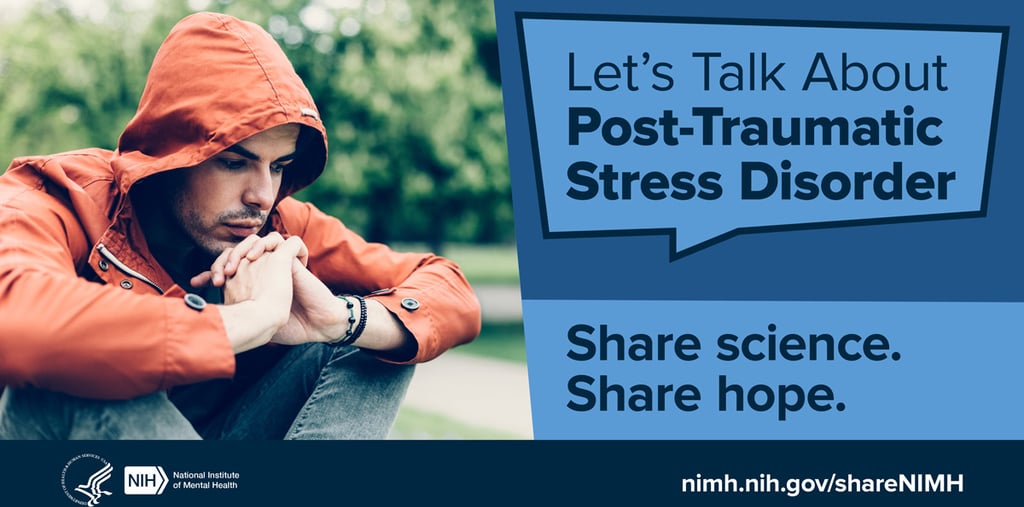
PTSD knows no race, gender, age or uniform: It can strike anyone, anytime
Healing from trauma: Our PTSD evaluation and treatment services
Trauma can leave deep scars, affecting not just the mind but the soul. At the Joy of Life Clinic, we offer specialized Post-Traumatic Stress Disorder (PTSD) evaluation and treatment services, understanding that the journey to healing is both personal and profound. We're here to help you navigate this path with compassion, expertise, and tailored care, ensuring you don't have to walk it alone.
Our commitment is to guide you toward reclaiming your peace, strength, and joy.
Shattering the myths: The truth about PTSD
Post-Traumatic Stress Disorder (PTSD) is a complex and often misunderstood condition that extends far beyond the battlefields. Despite increasing awareness, several myths continue to cloud our understanding of PTSD, making it harder for those affected to seek the help they need. Let’s debunk some of these misconceptions and shed light on the reality of PTSD.
Myth: PTSD only affects soldiers.
Truth: While military combat is a significant cause, PTSD can affect anyone who has experienced or witnessed a traumatic event. This includes survivors of natural disasters, accidents, violence, abuse, and even sudden life changes. PTSD knows no boundaries of age, nationality, or profession.
Myth: Having PTSD means you’re weak.
Truth: PTSD is not a sign of weakness, but a psychological response to overwhelming fear, stress, or trauma. The condition involves complex neurobiological changes; it's not simply about one's mental strength or character. People of the strongest resolve can experience PTSD; it's about exposure to trauma, not personal fortitude.
Myth: Everyone who experiences trauma will develop PTSD.
Truth: People respond to trauma in diverse ways. While many will experience some level of stress or difficulty after a traumatic event, a smaller percentage will develop PTSD. Factors such as the nature of the trauma, personal history, support systems, and individual resilience play significant roles in the development of PTSD.
Myth: PTSD symptoms are always immediate.
Truth: While some people may show symptoms of PTSD shortly after the traumatic event, for others, symptoms may emerge months or even years later. This delay can sometimes lead to misdiagnosis or misunderstanding of one's emotional and mental state.
Myth: If you have PTSD, you’re doomed to suffer forever.
Truth: PTSD is treatable. With the right support and treatment, including therapy, medication, and lifestyle adjustments, many people with PTSD can achieve significant improvement in their symptoms and quality of life. Recovery is a journey, and with patience and professional guidance, it is entirely possible.
Understanding PTSD is the first step toward supporting those who suffer from it. By dispelling these myths, we can create a more empathetic and supportive environment for everyone affected. If you or someone you know might be struggling with PTSD, reaching out for professional help is a sign of strength, not weakness. Together, we can navigate the path to healing.
Understanding PTSD and our Approach
A Compassionate Framework: Our services aim to provide a safe, understanding environment where individuals can explore and heal from their traumatic experiences.
Personalized Healing: Recognizing the uniqueness of each individual's trauma, we customize our treatment plans to meet your specific needs and recovery goals.
Recognizing PTSD: Signs and symptoms
Re-experiencing Symptoms: Flashbacks, nightmares, and intrusive thoughts about the traumatic event.
Avoidance: Steering clear of reminders of the trauma, including places, activities, and thoughts.
Hyperarousal: Being easily startled, feeling tense, or experiencing difficulty sleeping.
Mood and Thought Changes: Persistent negative thoughts about oneself or the world, feelings of guilt or blame, and diminished interest in previously enjoyed activities.
Navigating the path to recovery
A step-by-step process:
Detailed Thorough Assessment: Our initial step involves a detailed evaluation of your symptoms, the impact on your daily life, and any underlying issues.
Integrated Treatment Plans: We may employ a combination of psychotherapy (such as Cognitive Behavioral Therapy or EMDR), medication, and support groups to address the complexities of PTSD.
Empowering Strategies: Our approach includes teaching coping strategies and resilience-building techniques to empower you in your healing journey.


Trauma creates change you don’t choose; healing creates change you do choose.

Michelle Rosenthal
Click here to download NIH free brochure on PTSD
When to seek PTSD evaluation and treatment
Timely intervention is key:
Persistent Distress: If symptoms persist for more than a month and significantly impair your daily functioning.
Overwhelming Emotions: When feelings of sadness, anger, or fear related to the traumatic event are overwhelming and unmanageable.
Disruption in Daily Life: If the trauma is interfering with your relationships, work, or self-care routines.
The Goals and Objectives


What we aim to achieve with each client:
Alleviating Symptoms: To reduce or eliminate the symptoms of PTSD, allowing you to live a more balanced and peaceful life.
Enhancing Coping Skills: To equip you with effective coping mechanisms for dealing with memories of the trauma and the stresses of daily life.
Restoring Hope: To support you in rediscovering hope and joy, rebuilding your life beyond the shadow of trauma.
Our SMART Goals Defined
Our goals are Specific (tailored to your needs), Measurable (with clear benchmarks for progress), Achievable (realistic and manageable), Relevant (aligned with your personal mental health goals), and Time-bound (with scheduled reviews to assess progress).
You didn’t come this far to stop.
Believe you can, and you're halfway there.
Theodore Roosevelt
The benefits of our evaluation and treatment program
Transforming challenges into triumph:
Expert and Empathetic Care: Our team specializes in trauma and PTSD, offering compassionate and knowledgeable support.
Evidence-Based Treatments: We utilize proven, research-backed methods to ensure the most effective care for PTSD.
A Supportive Community: We provide access to group therapy and support networks, offering a sense of community and shared healing.
Your partner in healing
If the shadow of trauma looms large in your life, remember that light is within reach. Our PTSD evaluation and treatment services are designed not just to confront the darkness but to lead you back into the light, step by gentle step. With our dedicated team by your side, you'll find the strength to heal, grow, and reclaim the life you deserve.
Reach out to us today, and together, let's embark on your journey to recovery, resilience, and renewal.

Psychiatric evaluation and management
Other psychiatric and mental health reports.
Substance Abuse
We also provide these administrative services
Here're addiction problems we treat
Other nutrition and weight management services.
And we provide nutrition and weight management services to make your well-being even more complete
Don't let life's challenges define you—or your loved one—we are here to help you overcome and thrive!
Here're psychosocial and psychosomatic issues we treat
We operate under the laws and regulations of the State of Maryland as a Maryland outpatient clinic.

Home | About Us | Our Services | Blog | Terms & Conditions | Privacy | Telehealth | Forms & Resources | Appointments | Log In | Site Map | Contact Us
BY APPOINTMENT ONLY | NO WALK-IN
BEST WAY TO CONTACT US
Sign In to your account or Fill out the Contact Form or Appointment Form
or
Send us an Email at admin@jolclinic.com
Tel: (410) 231-3118 | Fax: (410) 262-6911
PATIENT RECORDS
To request your patient records, please sign in or go to the patient records information page.
Copyright © 2024 by the Joy of Life Clinic LLC.
4900 Belair Road
Baltimore MD 21206










